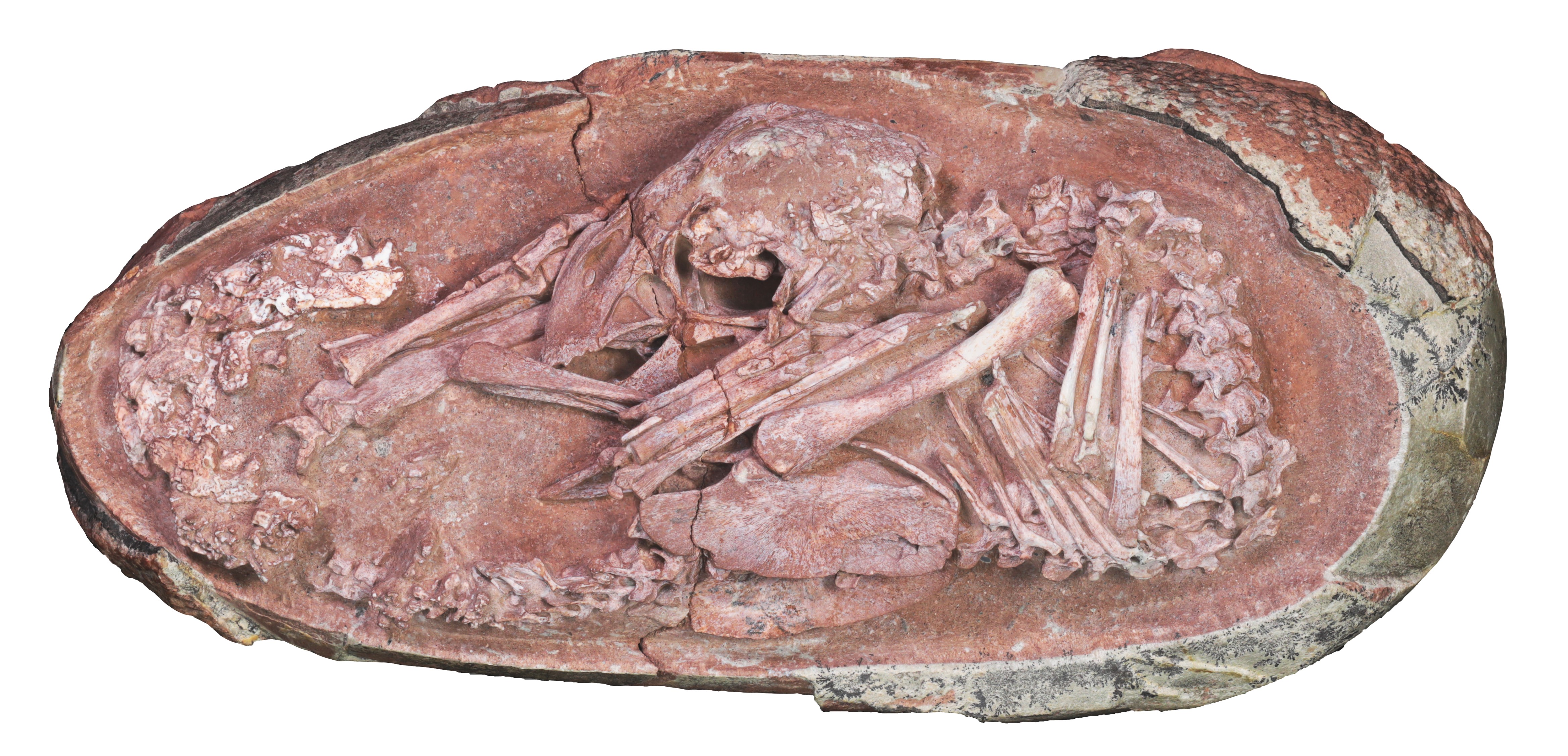An incredibly rare, fully articulated dinosaur embryo has been found inside a fossilized egg that had been collecting dust for over a decade in the storage room of a museum in China. Thought to be between 66 and 72 million years old, the unborn specimen reveals an incredible link between dinosaurs and modern birds.
Belonging to a group of feathered, toothless theropods known as oviraptorosaurs, the unhatched creature is estimated to be about 27 centimeters (10.6 inches) long, and marks the first discovery of a dinosaur embryo displaying a posture that is typical of present-day bird embryos. Shortly before hatching, modern birds engage in a series of maneuvers known as tucking, which involves curving the body and bringing the head down under the wing, yet the evolutionary origins of this behavior had until now remained unknown.
Reporting their discovery in a 2021 paper, the study authors explain that their specimen – nicknamed Baby Yingliang – was found with its head “ventral to the body, with the feet on either side, and the back curled along the blunt pole of the egg.” Such a posture, they say, is “previously unrecognized in a non-avian dinosaur, but reminiscent of a late-stage modern bird embryo.”
The oviraptorosaur embryo known as Baby Yingliang.
Image credit: Xing et al., 2021
Tucking is thought to play a vital role in the hatching process of birds, and those that fail to adopt this position are much less likely to survive their escape from the egg. That Baby Yingliang appears to have adopted the same pose suggests that the phenomenon may have first evolved among the ancient theropod ancestors of modern birds.
“This little prenatal dinosaur looks just like a baby bird curled in its egg, which is yet more evidence that many features characteristic of today’s birds first evolved in their dinosaur ancestors,” study author Professor Steve Brusatte said in a statement, reacting to this fascinating discovery.
Housed at the Yingliang Stone Nature History Museum, Baby Yingliang is among the most complete dinosaur embryos ever found, allowing researchers a rare look at an intact baby theropod. However, because it is the only specimen of its kind, the study authors admit that no firm conclusions about the nature of dinosaur embryos can be drawn from their observations, and that more fossils like this will need to be studied before any hypotheses can be confirmed.
Nevertheless, they conclude that “this new exceptional fossil embryo hints that some early developmental behaviors (tucking) often considered as uniquely avian may be rooted more deeply in the theropod lineage.”
The study is published in iScience.
An earlier version of this article was published in December 2021.
Source Link: Perfectly Preserved Dinosaur Embryo Found Inside Fossilized Egg
